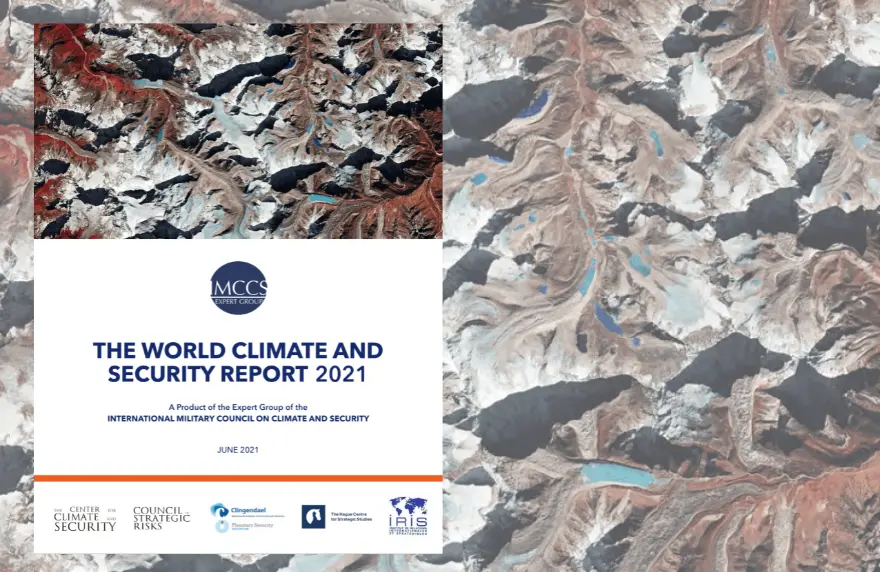Research
The Expert Group of the International Military Council on Climate and Security (IMCCS) released a new report, “Climate and Security in the Indo-Asia Pacific”, urging leaders to make climate change a security priority in the Indo-Asia Pacific.
This unprecedented report clearly outlines how climate change is already affecting the security situation in the Indo-Asia Pacific region and what the future security risks are.
The IMCCS is a group of senior military leaders, security experts, and security institutions across the globe – currently hailing from 38 countries in every hemisphere – dedicated to anticipating, analyzing, and addressing the security risks of a changing climate.
The emergence and ongoing consequences of Covid-19 have exposed serious societal vulnerabilities, even in wealthy nations, and demonstrated that foreseeable crises can have severe social, economic, political and security consequences. Furthermore, the Covid-19 crisis is a wake-up call for using science as a basis for risk management. Likewise, climate science should be incorporated into security policy and planning to avoid worst outcomes.
The report, which is part of the World Climate and Security Report 2020 Briefer Series, articulates six main points:
-
- Addressing the root causes of climate change should be a security priority for the region;
-
- Climate change should be higher on the regional security agenda;
-
- Climate change is worsening underlying security tensions in the region;
-
- Many security dynamics in the region are highly sensitive to climate change;
-
- Security communities in the Indo-Asia Pacific have a responsibility to prepare for and prevent these foreseeable security challenges;
-
- Better coordination between security communities is critical for combating climate-related security threats.
Download the high-res PDF of the “Climate and Security in the Indo-Asia Pacific” by clicking on the PDF button on the top of this page.
“The COVID-19 crisis has showed us how vulnerable we are to changes in our environment. We can’t hide from them behind our national boundaries and we have to address them collectively. The crisis also taught us what happens if we let time slip through our fingers; the longer we wait to prepare and to respond, the more severe the consequences will be. To me, COVID-19 is a prelude of the disruptions we can expect from our changing climate. This unprecedented report clearly outlines how climate change is already affecting the security situation in the Indo-Asia Pacific region and what the future security risks are. It’s not often that we have such foresight of future security threats. We have a responsibility to be prepared, to build resilience and to not let time slip through our fingers.”
General Tom Middendorp, Chair of the IMCCS and former Chief of Defence of the Netherlands
“The Indo-Asia Pacific experiences some of the highest levels of exposure and vulnerability to climate change in the world, while also accommodating populations with the lowest capacity to respond and adapt. The IMCCS is working on a risk matrix that assesses the nexus between climate change and security. This can strengthen vulnerability assessments and support and inform relevant decision-makers by including accurate, up-to-date insights of the security impacts of climate change and supporting efforts to integrate climate change into defense planning and operations.”
Michel Rademaker, Executive Member IMCCS, Deputy Director The Hague Centre for Strategic Studies
“Climate science provides us with deep knowledge about what we can expect in terms of extreme weather and other risk factors. What is missing is a better understanding of the threat nexus between climate change and security. The IMCCS provides tools and services that support more accurate and timely early warning systems, improved and sustainable defense planning, and smarter civil-military collaborations in humanitarian assistance and disaster relief. This IMCCS report provides a useful overview of the climate-driven security risks facing the Indo-Asia and Pacific regions and how these insights can be more effectively shared, bundled, and integrated into decision making processes.”
Laura Birkman, Climate Security Analyst, The Hague Centre for Strategic Studies








